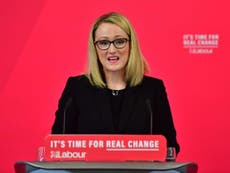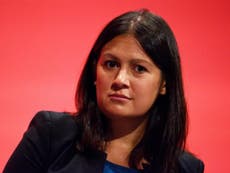Is Keir Starmer a ruthless opportunist or Ed Miliband Mark II?
If Starmer wins, as seems likely, we'll find out who he really is when he chooses his shadow chancellor

My colleague Andrew Grice is right to observe that, at this stage of the 2015 Labour leadership contest, Andy Burnham was the frontrunner. So we should be careful about assuming the result – but where’s the fun in that?
More importantly, given that Keir Starmer does seem likely to win, we ought to ask what kind of leader he would be. This is an important question, and we can only guess at the answer, because most leadership candidates say one thing to get the top job before saying something else to the wider electorate.
Fundamentally, the question is whether the Corbynite poses that Starmer has struck, including at his leadership campaign event today in Manchester, are designed simply to appeal to Labour Party members who voted for Corbyn twice – or whether he really believes that the party has to sell essentially the same message more convincingly.
Some Corbynites and some Blairites are united in fear and hope, respectively, that he is a ruthless opportunist who will ditch everything the moment the leadership votes are counted. Others hope and fear, respectively, that he shares the politics of Ed Miliband, his mentor.
After Corbyn was elected on a tide of enthusiasm in 2015, Miliband told friends that his mistake had been to listen too much to cautious advisers, and that he should have followed his “radical” instincts and done many of the things that Corbyn did.
The biggest test of the direction of Starmer’s leadership will be his choice of shadow chancellor. While he is likely to have Angela Rayner as his deputy, the real second-in-command in opposition is usually the shadow chancellor.
I think the leading candidates are Rebecca Long Bailey, Yvette Cooper and Rachel Reeves. Any of them would make history: not only has there never been a female chancellor, there has never been a female shadow chancellor.
Long Bailey would be the “Ed Miliband” choice. If Starmer means it when he says there is “no going back” to the pre-Corbyn Labour Party, he would appoint Long Bailey as a signal of his intention to unite the party.
Appointing John McDonnell’s protege to succeed him as shadow chancellor would mean keeping most of the economic policies that were in the manifesto. I suspect that, even leaving ideology aside, Starmer would prefer to appoint someone who would owe their position entirely to him.
This decision may depend partly on how well Long Bailey performs in the election. If she runs him close, Starmer may calculate that the cost of offending a large minority of party members is too great. He may be tempted to offend them anyway, though, knowing that once he is leader it will be hard to get him out – a challenge would require a large number of MPs to take against him.
Either Cooper or Reeves – both of whom have an MSc in economics, which is rare enough in politics – would be the bold choice. There are many things that Starmer can do that will distance himself from the Corbyn era that ought not to be controversial. He should be able to set up an independent body to police antisemitism in Labour’s ranks, the necessary first step towards rebuilding the party’s relations with Jewish people. But the appointment of his shadow chancellor will be controversial.
It is only then that we will find out which sentence from his speech today he really meant. Did he mean it when he said “you can’t ask for unity in the Labour Party if you don’t demonstrate it yourself”, or when he said “we should have our strongest talent and our strongest advocates out there making our case”?
He gave a sense today that he realises how far Labour is from power. He said it was not enough just to win back the seats the party lost last month; that ought to be obvious, but large parts of the party seem to be in denial. They seem to think that because they came close to winning in 2017, all they have to do is recapture the innocent appeal of early Corbynism to succeed with one more heave.
Starmer seemed to appease this nonsense with his pledge not to trash the last Labour government but not to “trash the last four years either”, and his praise for the 2017 manifesto as “our foundational document”.
But perhaps he is just saying that to win votes from party members who are currently only loosely tethered to reality, and he is going to deliver some home truths to them on 5 April. The most important truth will be his appointment of a shadow chancellor.







Join our commenting forum
Join thought-provoking conversations, follow other Independent readers and see their replies